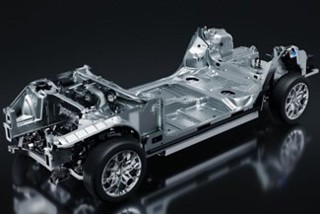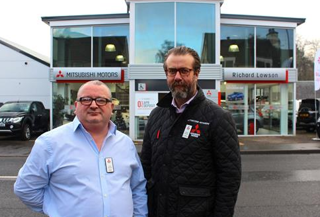DaimlerChrysler looks set to walk away from not one but two of its corporate alliances, casting into doubt future model developments. The carmaker has already closed the door on a venture with Mitsubishi Motors and is now deep in crisis talks with Hyundai.
Both relationships were crucial to developing new forecourt metal and retailers are now asking what the future holds for three of the world's biggest carmakers. “Such a devastating U-turn would leave DaimlerChrysler with no presence in Asia and a flawed global strategy,” warns industry expert Garel Rhys. “This is also a wake-up call for Mitsubishi.”
Asia is the world's fastest growing car market, with every European and American carmaker jostling for position. Clearly DC felt that it could not continue to invest millions of pounds in Mitsubishi without seeing a return - although it is yet to reveal its plans for the 37% stake it still holds in the company.
“I don't view our situation as disastrous,” says DaimlerChrysler finance director Manfred Gentz. “We will continue with our strategy, but we have to reconsider our Asian strategy. That doesn't mean the whole strategy was wrong and we will continue to go forward.”
Inevitably, the situation has claimed corporate scalps. Mitsubishi president and chief executive officer Rolf Eckrodt has already stepped down after failing to secure 250bn yen (£1.2bn) of additional support from its partner. Reports in Japan suggest Yoichiro Okazaki, currently a director at Mitsubishi Heavy Industries, will replace him, subject to shareholders agreement.
Japanese companies are being urged to support a multi-billion-pound rescue strategy. One option is for the carmaker's parent group, Mitsubishi, to stump up the cash to secure the jobs of 45,000 employees. DC's decision has sparked a political backlash in Tokyo. Transport minister Nobuteru Ishihara says: “The German automaker's decision could have a grave implication for Mitsubishi Motors, even affecting its survival.”
Fears are growing in the UK that bad press will affect sales. But Ken Savage, chairman of Perrys Motor Group, which has the Mitsubishi franchise, believes dealers will not be immediately hit. “We are insulated. Any impact on product planning will not hit us for a few years – if at all,” he says.
Analysts say Mitsubishi must scale down its activities if it is to survive. Problems range from an unsuccessful strategy of offering car loans in the US, which backfired when buyers refused to pay them back, to product recalls and scandals over faulty goods. On April 9, it recalled 81,531 cars with faulty wheels. And in 2000 it said it had failed to inform authorities of 64,000 customer complaints about problem vehicles dating back to 1977.
DC's alliance with Hyundai also hangs in the balance. Since buying a 10% stake in the Korean carmaker in 2000, just one big project has been agreed: the three-way building of four-cylinder engines for Chrysler, Hyundai and Mitsubishi.
A Hyundai spokesman moved to reassure UK dealers. “Nothing changes as far as the UK operation goes. Whatever is going on at that level will not affect us.”
















Login to comment
Comments
No comments have been made yet.